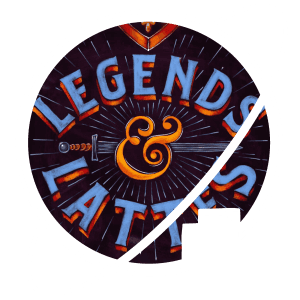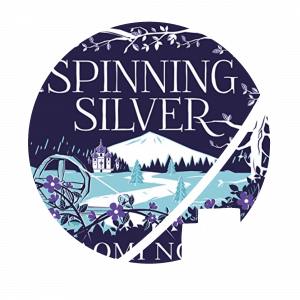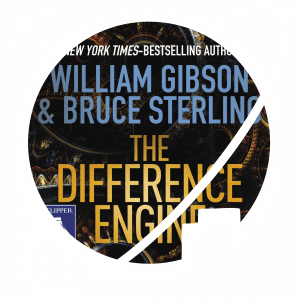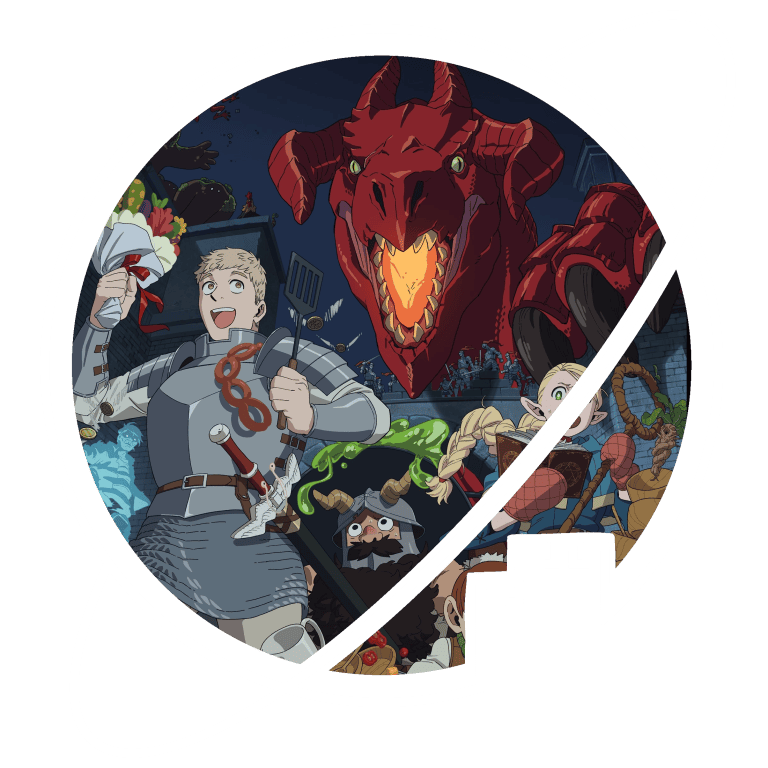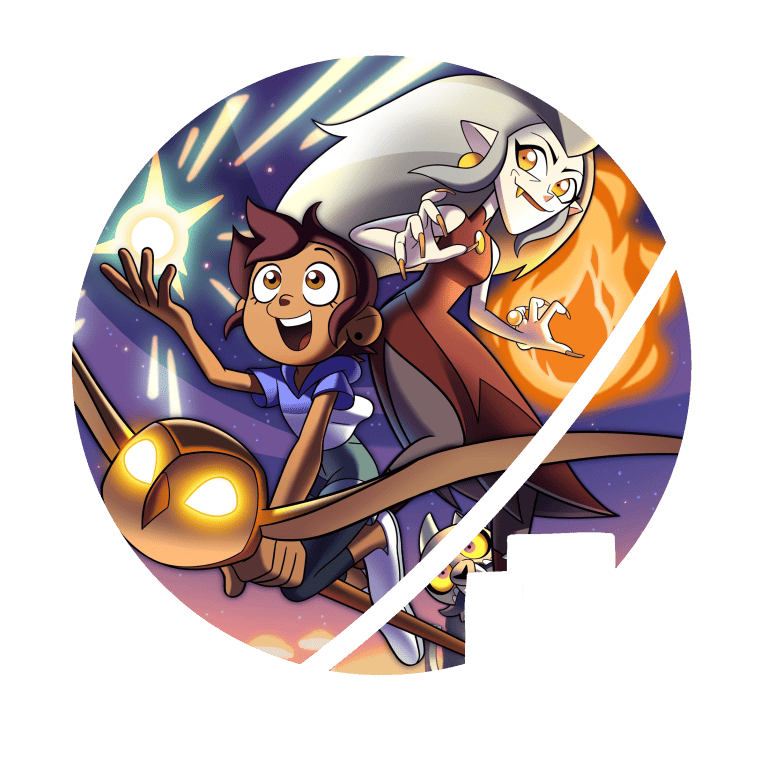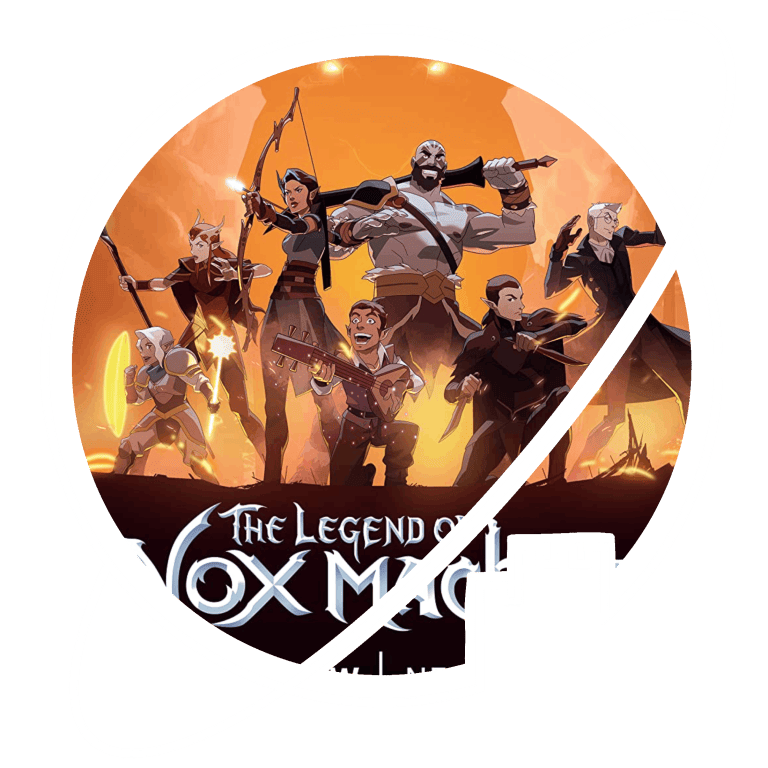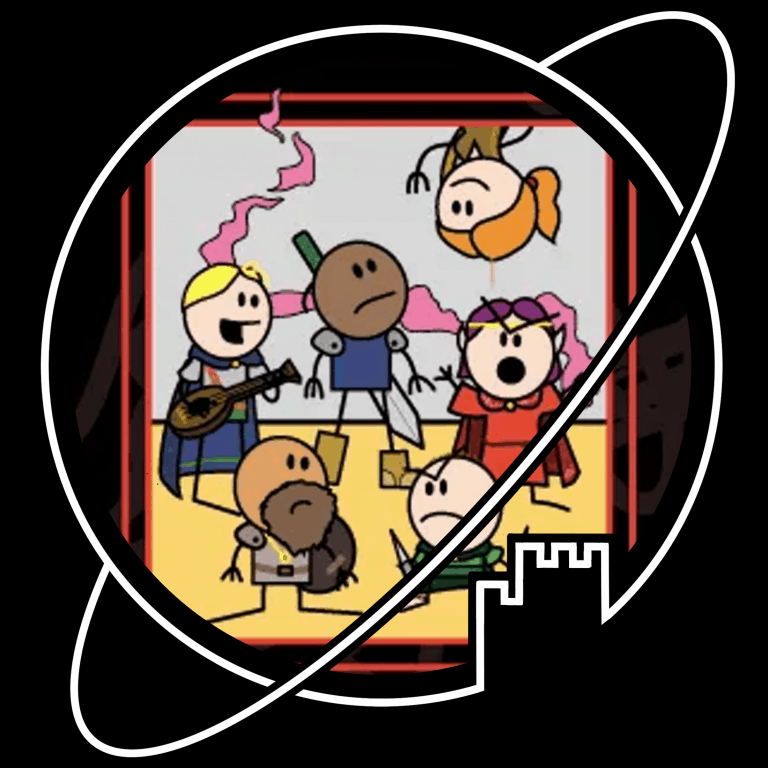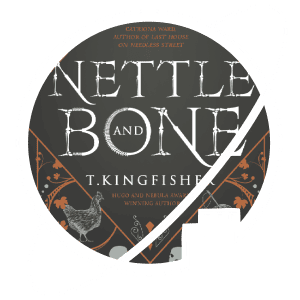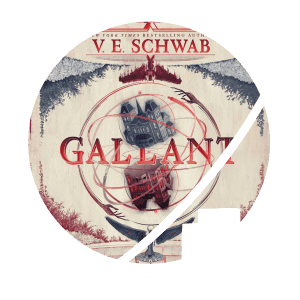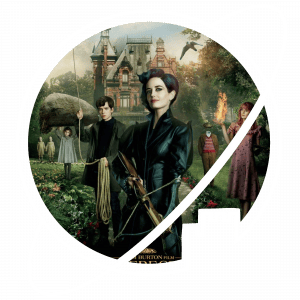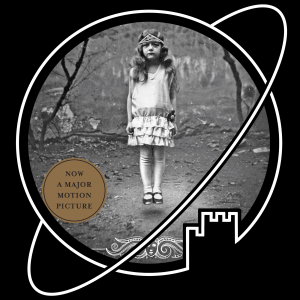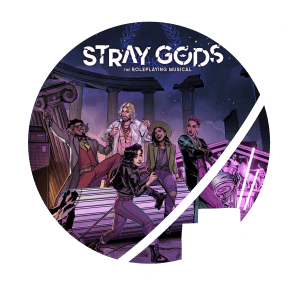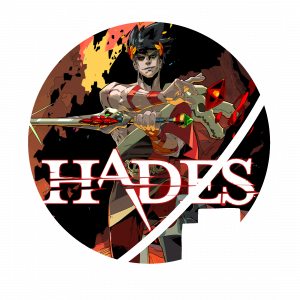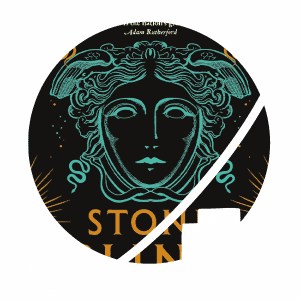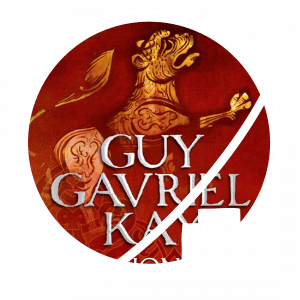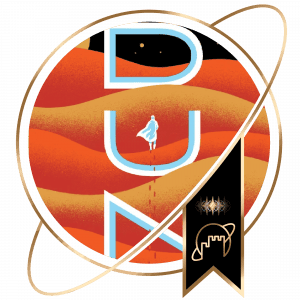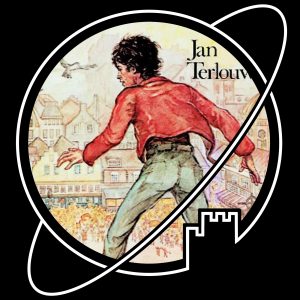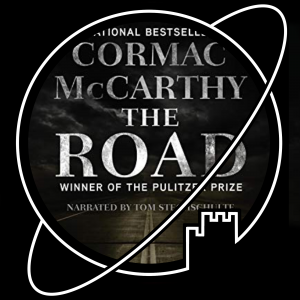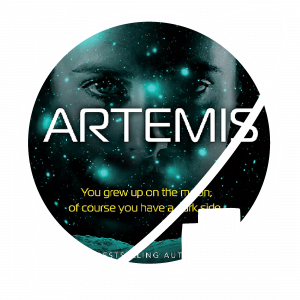A curated Collection of Fantasy and Science Fiction Media
Recent Updates
- Novel written by Heather Fawcett
- Published in January 10, 2023
- Part one of the Emily Wilde series


I read this book after seeing it discussed by a book YouTuber. Emily Wilde’s Encyclopedia for Faeries is apparently popular on BookTok, and with all due respect to the TikTok community, I wasn’t hugely optimistic that it would be up to my standards. I’ve previously reviewed another wildly popular cosy fantasy novel, Legends & Lattes, and I wasn’t that impressed. I was expecting to feel similarly about Emily Wilde’s Encyclopedia of Faeries.
Instead, I found myself very charmed by this novel. This is exactly what I think cosy fantasy should be. A fun, character-driven story that has stakes, but the stakes never get too high. When the stakes are high, the reader knows that all will be well in the end.
The characters are really the highlight of this book. Emily isn’t super likeable as a person, but she’s a very good protagonist. Meanwhile, Wendell Bambelby (whose ridiculous name actually makes a lot of sense for his character) rather reminded me of Howl from Howl’s Moving Castle.
Plotwise Emily Wilde’s Encyclopedia of Faeries isn’t the strongest. Especially the ending felt rushed and not super satisfying. If the plot had been the main selling point of the book this would have bothered me more. It’s not, though, which makes me a little more forgiving.
I would say this book is great for fans of the cosy fantasy genre, as well as people who loved Howl’s Moving Castle or the work of Naomi Novik. Granted, this novel doesn’t quite have the depth of something like Spinning Silver, but in many ways it scratches the same itch.
Tagged:
See also:
- Novel written by Philip Reeve
- Published 16 November 2001
- Part 1 in the Mortal Engines Quartet


Listened to the audiobook with Barnaby Edwards – good narrator.
Probably the one thing about Mortal Engines that I will remember is the worldbuilding. Mortal Engines has a very interesting world that at once feels familiar and also takes a bit of time to wrap your head around. I think it must be the unexpected combination of tropes brought together from across settings: steampunk airships and aviators, dieselpunk wonder weapons, a post-apocalyptic wasteland with pre-apocalypse tech to be found and brough back in use, and whatever setting Shrike belongs in.
And I haven’t even mentioned the main event: traction cities, metropolis-sized settlements on huge treads, trundling over the wasteland and hunting each other for fuel and spare parts. It’s absolutely bonkers and hugely evocative, and sure to stick with you long after you’ve put down the book.
That said, Mortal Engines is not about exploring or explaining the details and rather leans on the rule of cool, which in this case I can respect; there was never going to be a way to make traction cities actually feasible, but it would be a pity to ditch the idea because of that.
While the worldbuilding of Mortal Engines is great (if a bit rule-of-cool), I think the plot is somewhat mediocre. It is the kind of story where the plot happens to the protagonists (rather than the protagonists driving the plot) for the first three quarters of the book. The pace is high enough never for it to become boring, but it feels like the main characters are running through a series of interesting scenes and events just so Reeve can show them off.
That changes just in time for the novel’s finale. The protagonists actually stop running away and start influencing the plot, at which point they turn out to be surprisingly (and inexplicably) competent – which feels a little unearned, though it is satisfying.
Overall, the plot is what I would call basic: functional, but not original (and at time surprisingly intricate, not to say, convoluted).
Between the plot and the worldbuilding, there is little room left for the characters, and unsurprisingly, they don’t quite pop off the pages. This being a relatively straightforward adventure story with a focus on a whacky world, though, I can’t fault Reeve too much.
At the end of the day, Mortal Engines does more or less what you would expect from a simple adventure novel intended for younger readers, though it has a lot or original ideas in its worldbuilding.
An interesting little fact I learned about Mortal Engines is that it was apparently originally a much more ambitious adult novel, set in an alternate history (as opposed to the post-apocalypse), that was simplified and shortened to be more suitable for teens. That helps explain why there is so much going on in this book for how long it is. You can feel that ambition seeping out at the seams sometimes, though I am not sure that it is good or bad. It does make me wonder whether the cool ideas that went into the world would have stood up to a more serious plot.
We will never know, but the teen adventure novel in the wacky world of municipal Darwinism that we got is worth your time if you manage to suspend your disbelief on one tank-treaded city chasing down and eating another.
Tagged:
See also:
- TV show directed by Yoshihiro Miyajima for Netflix
- Based on Danjon Meshi by Ryōko Kui
- Released 4 January 2024
- 1 Season of 24 Episodes, renewed for a second season.
When an adventure deep within the dungeon results in the death of his sister, Laios convinces his adventuring party to rely on unorthodox sources of food to try and save her before time runs out. After all, who’s to say monster parts can’t be just as tasty and nutritious as normal food?

(This review relates to the first season only.)
Quite soon after its release, I saw much praise for the first episodes of Delicious in Dungeon (fan of the alliteration, by the way). The bits and pieces that I glimpsed, left me with a taste of ‘cozy fantasy in a D&D-esque setting’. This, along with the fact that it had been some time since I last enjoyed a Japanese anime, convinced me to give it a try myself.
Like many others, I was immediately charmed by the cozy vibes of one of Delicious in Dungeon’s **core premises: the unique ecosystems of fantasy dungeons and their unexplored culinary opportunities. I was fascinated by this clever perspective and was curious to see how it would play out in later episodes (unfortunately I quickly had to wait for the weekly releases). Though admittedly the show hasn’t (yet?) gone very deep with its worldbuilding in this regard, they give enough to make an often unexplored fantasy setting staple fresh (pun intended). How would multiple creatures live next to each other in a crazy biome such as a dungeon? How would magic play into this? And what is the role of adventurers in this circle of life? Of course, I think the various meals created from monster parts are a nice touch in this.
The main characters of Delicious in Dungeon are charming enough to make the leisurely pace of this series work. As I have a fondness for dwarves, Senshi with his overadvanced cooking utensils was predestined to become one of my favourites. Izutsumi was a great surprise, and also Marcille quickly endeared herself to me. All the characters have some loveable quirks, dark secrets and unique dynamics with the other characters to make their wandering through the dungeon enjoyable.
There’s also plot in Delicious in Dungeon though it’s easy to forget after a few episodes. The characters are on a time-sensitive quest with high personal stakes, and at times there are hints of something bigger happening in the background. When you’ve just gotten used to the cozy cooking shenanigans, Delicious in Dungeon reminds you of some darker aspects of its world and story. I thought it was clever how the series juggles these paradoxical tones.
All in all, I would say Delicious in Dungeon is a comfortable watch that also provides overarching tension through some (heavier) subjects and questions. If you enjoy anime and fantasy, I recommend you watch it.
Tagged:
See also:
- Novel written by T.J. Klune
- Published 17 March 2020
- Standalone
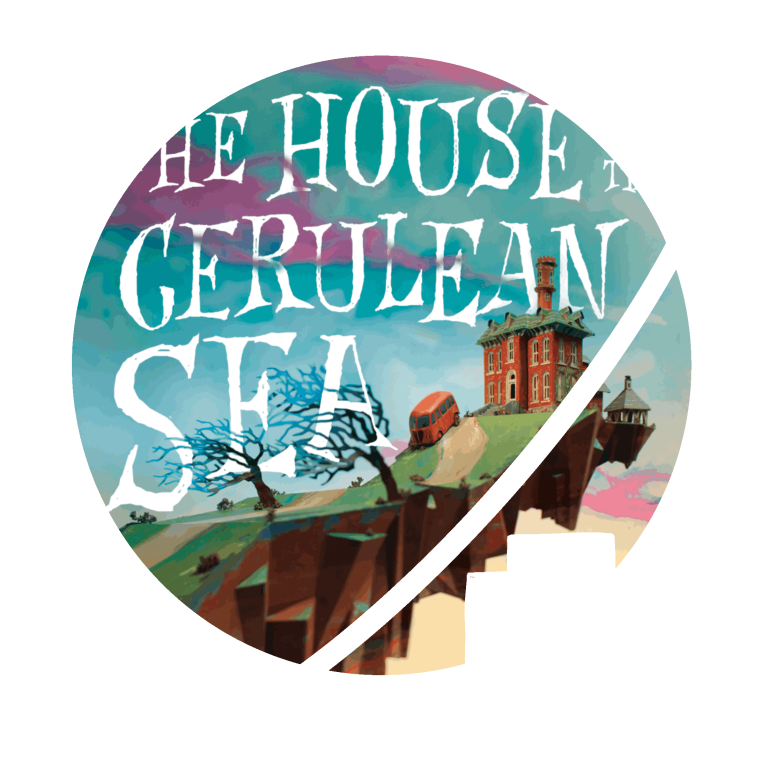

Listened to the audiobook with Daniel Henning – fine narrator.
I’ve probably had enough cosy fantasy for a while.
The House in the Cerulean Sea popped up in recommendations a couple of times and it has a cute cover, so I loaded into my player and gave it a shot. I can’t bring myself to feel enough emotions over this book to really regret the choice, but I could probably have spent my time better elsewhere.
The House in the Cerulean Sea is another one of these aggressively inoffensive books that are intended to feel like a warm bath or a getaway from the challenges of real life. And I get that that is popular subgenre right now; Nettle & Bone even managed to snag a Hugo with that style of storytelling (and arguably, the Hugo winning Wayfarer-series falls within the same category).
Most of those books don’t really click with me though, and unfortunately neither did The House in the Cerulean Sea. Klune’s desire to constantly put the reader at ease means that there really is no conflict worth mentioning in the story (at least: not between the main characters).
A by-product of focussing on comfort is that the novel is quite repetitive, even for a short 8-hour listen. The book revolves around the care given to the small group of children in the orphanage. The children are each recognisable and unique, but they also effectively have only one line each . Throughout the story, they sort of repeat a different variation on that line every time they open their mouth. The grown up characters are little different. The effect is that yes, the reader gets familiar with all the characters in the book quickly, but they also feel like caricatures of themselves.
That is unfortunate, because the plot is similarly predictable. I get that that is probably also linked to that idea of comfort: Klune is not out to surprise the reader with a big twist (though I suppose the book pretends to have a couple of mysteries). Still, just a little effort could have given the reader a reward for finishing other than the conclusion that was inevitable from basically the moment Linus arrives at the orphanage.
I feel this book would probably have needed a good dose of humour to pull it out of mediocrity. And my impression is that Klune does try: a few of the children are so surreal that their first few appearances are rather funny. But that does not last (also because of the repetitiveness mentioned above), and Linus’ awkwardness never really brought a smile to my face.
In conclusion, The House on the Cerulean Sea may be cuddly and cute to some, but it was sickly sweet and ultimately somewhat boring to me. Perhaps more of a read for small children than for adults, which I understand it was intended for…
Tagged:
See also:
- Video game developed by Ubisoft Quebec
- Published by Ubisoft
- Released om October 5th, 2018
- Action Role-playing game
- Platforms: PC, Playstation 4, Xbox One,
- Playing time: 50-150 hours
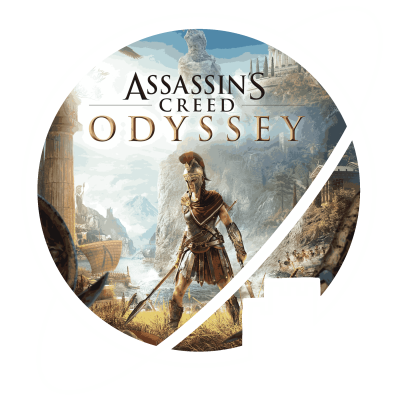

Before we get started on this one, a little background on me: when I was a child, I was OBSESSED with Greek mythology. Like, legitimately obsessed. I’d read all the retellings for children (not Percy Jackson but Dutch children’s retellings, of which there are a surprising amount). My favourite was the story of Odysseus, even though in retrospect he was the absolute worst.
I’ve also never been particularly interested in the Assassin’s Creed-franchise. I really liked the idea of being able to walk around cities of the past, but the whole sci-fi plot and the templar thing kind of put me off the games. I may not have even played Assassin’s Creed Odyssey if it hadn’t been for the reviews I’ve read. Lots of people described it as “barely assassin’s creed” or even as similar to Bioware games. And I LOVE Bioware games.
Let me first explain the type of gamer I am: I’m a total casual. I’m here for a good time, not a hard time. The story of a game is what usually matters most to me, and the gameplay has to be fun enough to carry me through to the end. I’m not looking for particularly interesting combat, and frankly Assassin’s Creed doesn’t really offer that (at least the way I play it). I’m happy to just shoot some arrows at people from a bush!
The main draw this game has for me is being able to walk around Ancient Greece. The world is absolutely gorgeous, and I could (and have) spent hours just walking around and taking it all in. It’s lots of fun to be able to compare current locations in Greece with their versions in Assassin’s Creed, like The Acropolis or Delphi. A lot of research and heart have gone into this game and it really shows.
I’ll be honest: the story of Assassin’s Creed Odyssey is… fine. It’s not amazing, but it’s serviceable. Where the game really shines for me are the characters, specifically Kassandra, when you play her as the main character. Her voice acting is phenomenal and often very funny. While the game itself isn’t necessarily “funny”, there are quite a few humorous scenes, made more so by the choices made in the acting.
I was a little worried about the “Assassin’s Creed” content in the game, meaning the scenes set in the present. As I mentioned, I haven’t played any other Assassin’s Creed games and I genuinely don’t care about the overarching plot. To their credit, there were very few of these scenes in the game, and I think they were mostly optional. I don’t think you could play through the main story without going through any of them, but I also don’t think there’s more than half an hour of them in the “Odyssey” quest. This does mean that they fully pull you out of the game and feel like an absolute chore when you play them, but I also get that this is a franchise and they were kind of telling this big story and they can’t just cut it out altogether.
I’m not totally sure when I can say I’ve really “finished” Assassin’s Creed Odyssey. I’ve played the full “Odyssey” quest, but there’s definitely stuff I’ve seen online that I haven’t run into, so I think I’m not fully done. I do feel like there is a big difference in quality between the “in-world” quests and the whole Animus/Atlantis/Sci-fi/Templars storyline. This makes it hard to really give it a star rating for the whole game. However, because the main quest was so much fun I do think it merits 4,5 stars just for that.
- Novel written by Paulo Coelho
- Translated by Alan R. Clarke
- Published in 1988
- Standalone
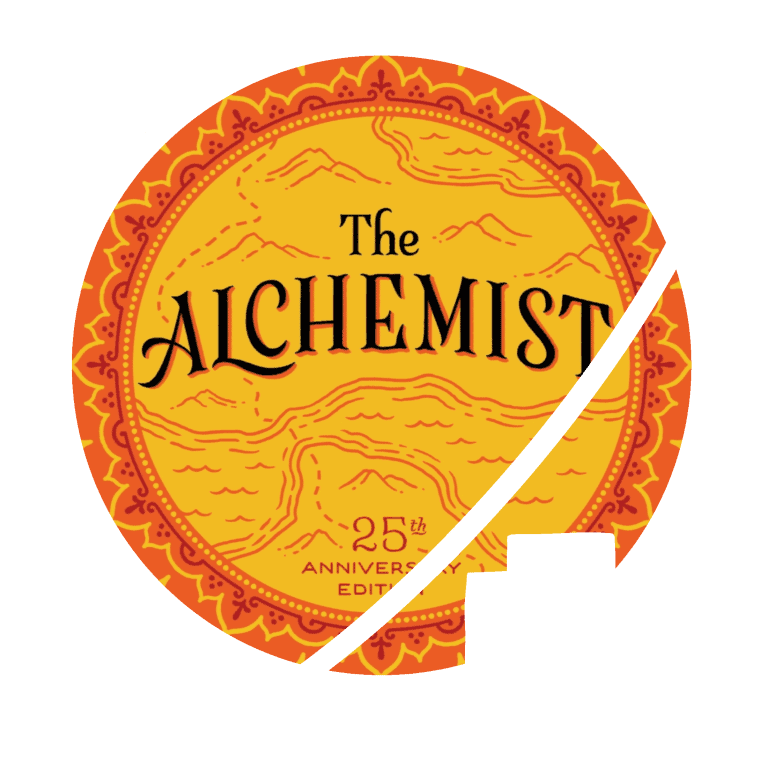

Listened to the Alan R. Clarke translation, narrated by Jeremy Irons. I’m going to have to admit that seeing Irons as the narrator was at least half the reason I finally listened to The Alchemist and he did not disappoint: Irons has an incredible voice that fits the story very well.
The Alchemist is one of these novels that I have been aware of for a long time. I’m not sure why I never read it, but I regret that now. I would have loved to have read this as a kid.
The Alchemist is a retelling of a story told a thousand times: a shepherd boy leaving all he knows behind, travelling to foreign lands, looking for treasure. Of course, he finds and experiences much more along the way, and of course, there is a classic twist at the end.
That classic tale is mostly a vehicle, however, for the book’s message: that everyone has a personal legend, and that the universe will conspire to help a person who is on their way to achieving that personal legend. It is a book about seeking out and committing to your destiny, no matter the setbacks along the way.
It is a beautiful and inspiring message, even if I’m not sure I agree: the world is a rather unyielding and unfair place, and even people trying really hard sometimes don’t make it. Still, Coelho’s characters are so confident that I didn’t doubt for a moment that the boy would manifest that personal legend.
Perhaps the best thing about The Alchemist is its length. It is about four hours of listening, I would venture about 200 pages long. On the right day, you could definitely finish it in a single inspirational and heart-warming sitting.
I love the simplicity, the single-minded focus of The Alchemist. There is not a word spent on a tangent, never a second thought required from the reader. The plot follows predictable lines, the book is set in the real world, many of the characters are stereotypes – all so that the reader keeps his mind on what really matters: the message.
The focus on the message is reinforced by the simple and elegant style of the book. To give one example: the main character is named in the first sentence of the book, but that is the only time his name is used; through the rest of the novel, he is just ‘the boy’. That this makes perfect sense throughout the novel is a sign of Coelho’s craftsmanship.
Especially because it is so short, I would whole-heartedly recommend The Alchemist to almost anyone: cynical folks like me who need a break, the better-natured readers looking for an inspirational tale to reinforce their energy, even readers who have never tried fantasy before and want to dip their toes in the water via Coelho’s simple magical realism. I am sure each and every one of them would remember The Alchemist for the rest of their lives.
Tagged:
See also:
© 2023 – Escape Velocity – A Curated Collection of Fantasy and Science Fiction Media
Privacy Overview
| Cookie | Duration | Description |
|---|---|---|
| cookielawinfo-checkbox-analytics | 11 months | This cookie is set by GDPR Cookie Consent plugin. The cookie is used to store the user consent for the cookies in the category "Analytics". |
| cookielawinfo-checkbox-functional | 11 months | The cookie is set by GDPR cookie consent to record the user consent for the cookies in the category "Functional". |
| cookielawinfo-checkbox-necessary | 11 months | This cookie is set by GDPR Cookie Consent plugin. The cookies is used to store the user consent for the cookies in the category "Necessary". |
| cookielawinfo-checkbox-others | 11 months | This cookie is set by GDPR Cookie Consent plugin. The cookie is used to store the user consent for the cookies in the category "Other. |
| cookielawinfo-checkbox-performance | 11 months | This cookie is set by GDPR Cookie Consent plugin. The cookie is used to store the user consent for the cookies in the category "Performance". |
| viewed_cookie_policy | 11 months | The cookie is set by the GDPR Cookie Consent plugin and is used to store whether or not user has consented to the use of cookies. It does not store any personal data. |







